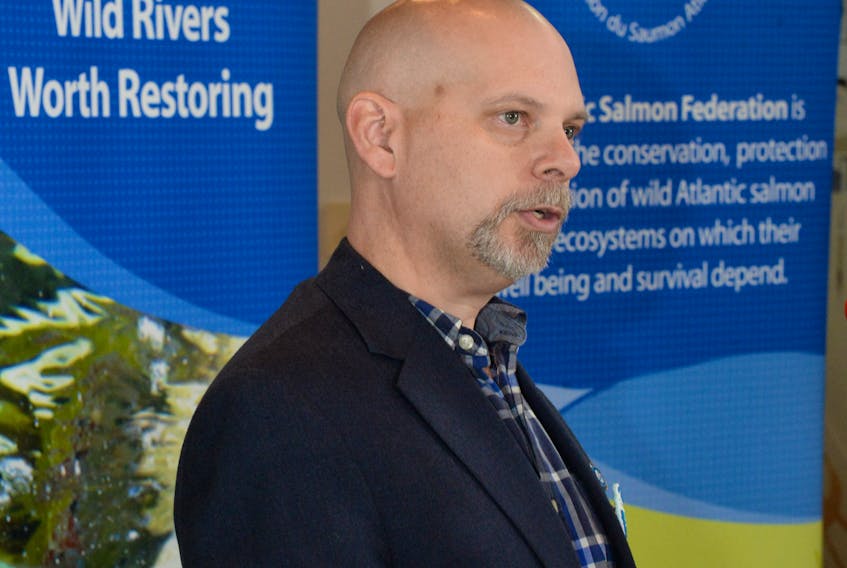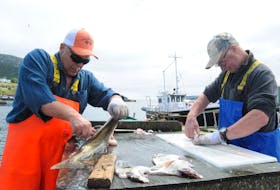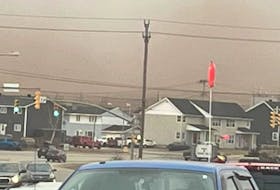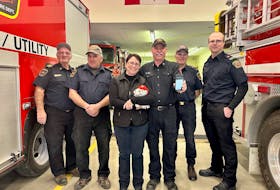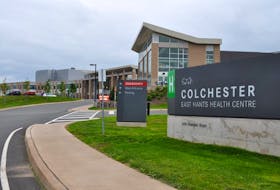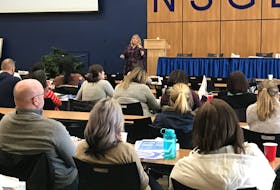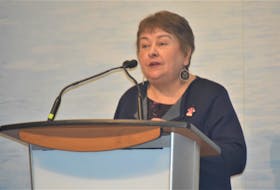ST. JOHN'S, N.L. — The massive salmon die-off on the south coast could leave fish processors without work for months, with little certainty about when things will return to normal.
Earlier this month, Northern Harvest Sea Farms, owned by Norwegian aquaculture company Mowi, announced the death of 2.6 million farmed salmon in their pens on the province’s south coast.
With 2.6 million fish dead, that’s 2.6 million fewer fish for processors in Harbour Breton to work with.
Greg Pretty, the industrial-retail-offshore director with the Fish, Food and Allied Workers (FFAW) union, says while workers employed by Northern Harvest directly aren’t likely to see much of an interruption in their work, the 100 unionized fish processors employed by the Barry Group are in a much more precarious position.
“The news with Barry is not very good at all. In essence, what they lost was next year’s production,” he said.
“They originally thought they could go until Christmas on the clean-up, but it looks like it’s going to be a lot sooner than that. We think we might get two or three more weeks of production.”
"In essence, what they lost was next year’s production." — Greg Pretty
Pretty says some salmon will still come in to be processed, but nowhere near what workers need.
“It certainly will not produce a 40-hour work week,” he said.
Pretty says the company is expected to give more clarity on the situation in the coming days.
Pretty says he has requested a meeting with Fisheries and Land Resources Minister Gerry Byrne and Premier Dwight Ball to discuss the full severity of the situation and how the government will help manage the aquaculture industry in the future. A time for the meeting has not yet been set.
Court challenge
The Atlantic Salmon Federation (ASF) was in St. John’s on Thursday, raising concerns about the environmental assessment for another one of Mowi’s projects.
In July 2018, Mowi submitted a proposal to expand a salmon hatchery in Stephenville from 4.5 million smolt a year to 6.7 million. Once able to travel, the smolt would be transported to the Northern Harvest sites on the south coast.

According to the ASF, the environmental assessment only considered in its assessment the hatchery in Stephenville, and not the destination of the smolt. Despite that, the project was approved by then-Environment minister Andrew Parsons.
The ASF challenged the Grieg Aquaculture project in Placentia Bay and got a new environmental assessment done in that case.
"In the Grieg case it was a requirement for the hatchery and sea cages to be described together, and despite the repeated efforts of the provincial government to avoid a full environmental assessment, the court ordered it, calling it nothing less than 'a duty owed to the people of the province,'" the ASF stated.
A Supreme Court challenge of the environmental assessment for the Stephenville hatchery is due for its first day in court on Nov. 6.
Mark Lane, executive director of the Newfoundland Aquaculture Industry Association, says the aquaculture industry in this province already sees extensive scrutiny. He says there’s no need for another environmental assessment for the hatchery.
“Even the pens that we use today are safe. You have to look at the unfortunate circumstance of the last two weeks. If this was any other industry, chicken farming, beef farming, pork farming, wheat farming, and some environmental event — unavoidable event — had occurred, the conversation would be different,” Lane said.
“If it was a wheat farmer that lost their crops to drought, there would be empathy, sympathy, open arms. I think as Newfoundlanders and Labradorians, we need to stand behind the hard-working farmers we have on the south coast.”
RELATED

